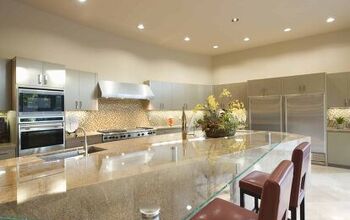Cellars Vs. Basements: What Are The Major Differences?

Be it a basement, or a cellar, some houses have an additional level that exists below ground and that serves as the foundation. While some people use the terms interchangeably, there are quite a few differences between the two.
While many people call a cellar a basement and vice versa, they’re both different in how they are built and how they function. Cellars are designed to sustain a sturdy, cool temperature ideal for food storage, while basements are constructed mainly to have extra living space.
In this article, we will take explain the differences between a cellar and a basement. Even though many people will tell you they’re the same thing, they’re very different in the way that they function. Read on to learn what these differences are so that you can choose the ideal underground addition for you.
Cellar vs. Basement
Cellars and basements are a smart add-on to any home. A cellar allows you to store perishable food or wine to extend the shelf life, while basements provide additional living areas. To understand the differences, it’s essential that you know a bit about each, which we will share with you below.
History Of Cellars
Cellars date back to the caveman era! Of course, they were not called cellars back then, but they still served the same purpose. It is thought that in prehistoric times, cavemen and women used underground caverns to store valuable items, including food, because of the cool temperatures.
However, perhaps the most notable cellars that ever existed would be those used in the Roman empire. These cellars were used mainly to store wine and food, and some were even converted into tombs.
Regardless of the area of the world that the cellar resided in, throughout time, there was a common theme: The cellar was used to store food items and drinks. This is because the cellar was constructed in a way that it kept a cold and steady temperature so that food and drinks would not spoil.
Cellar Construction
Usually, cellars are the first pieces of a property that is constructed; however, they can still be added later. When constructed, cellars typically face away from the sun and have four-inch vents on the wall that faces the north side.
Since insulation is vital, the cellar needs to be at least two feet underground. For the best results, you should have the cellar entirely beneath the ground, but two feet is sufficient if this is not possible. The natural insulation keeps your cellar and its contents away from any hot or freezing weather and the activities that happen on the surface.
Basics About Basements
There is not much by way of history when it comes to basements because they evolved from cellars, so we thought we would give you a quick overview of a basement’s essential functions. They, too, can be either partially or entirely underground.
Unlike cellars, basements are a great area to put storage, but no food or perishable items. This is because it is not as climate controlled as a cellar, and the basement tends to have more moisture build-up. People usually tuck away their holiday decorations in their basement or use the space as a workshop.
Furthermore, others have used their basements for things such as:
- Creating a home gym
- Mancave
- Hobby lobby
- Game night gatherings
- Bedrooms
- A second living room
And the list goes on!
How Is A Basement Constructed?
When it comes to basement construction, it is not as elaborate as a cellar. Basements do not usually have vents to the outside, and they also do not have to face a certain way. This means that your basement is generally at the mercy of the elements or other types of earthly activities.
In a basement, you usually need to install a dehumidifier as they are typically musky and damp. Although, if you are storing your valuables in airtight containers, this is not necessary.
Should You Choose A Basement Or A Cellar?
Now that you have a good idea of what both cellars and basements can offer you, the question remains: Should you choose a basement, or would a cellar be better? Ultimately, that is up to you and your needs regarding your situation.
For example, if you live on a farm and you grow a lot of vegetables and fruits, then perhaps a cellar would be best so that you could preserve the fresh vegetables for a longer amount of time. This also helps to keep the fridge and freezer free, and you do not have to think twice about where you are storing your produce.
Also, a cellar would be excellent if you are a wine connoisseur! Wine cellars are essential for those who love to collect vintage wine as it helps preserve your delicious wines.
When Should You Choose A Basement?
If you are in an area that does not experience frequent earthquakes and is not anywhere near the marshlands or swamps, then a basement is a great idea. If you are looking to make the best of your living space, a basement will allow you to do just that.
You can transform the bottom floor of your home into anything you desire. Or, if you have a full basement, you can use half of it for storage and the other half as a den or a home workout space. However, if you are in an area where flooding is common, then a basement or cellar would not be a good idea. In that case, you would need to look into building a crawlspace.
Cellar vs. Basement: Advantages And Disadvantages
As with everything, both cellars and basements have advantages and disadvantages.
Cellar Pros And Cons
Here are just a few of the advantages of having a cellar:
- The temperature is always stable. The main advantage of owning a cellar is that you can keep your food and drinks down there, and the cellar will preserve them due to the non-fluctuating, cool temperatures. The different foods you can keep in a cellar include veggies, fruits, dairy products, and meat. The steady temperature will allow you to extend your food’s shelf life.
- You have somewhere to store wine. If you love your vintage label wines, then you will love having a cellar as you can turn it into a wine cellar. The steady temperature will help you preserve your wines for as long as you want.
Cons Of Having A Cellar
And of course, the disadvantages:
- Your food might rot. While cellars are lovely for temperature control, the issue is not with the cellar but rather some foods. Some items like tomatoes and plums will emit gases that will cause other vegetables around them to rot. However, you can prevent this by putting the gas-emitting veggies next to an outdoor vent so that the gases have a place to escape through.
- Pests are common with cellars. If you do not put mesh over your vents, you run the risk of rats, mice, and other pests making their way into your cellar. You also need to store your foods in airtight containers so if they do make their way in; they cannot get into your food. Plus, the extermination chemicals will not affect your food either.
- It can be expensive. The cost to build a cellar depends on the different features you want to add and the temperature controls, room size, and the refrigeration system you use.
Basement Pros And Cons
Here are some advantages to choosing a basement over a cellar:
- Extra space. Who does not love extra space? The best part of having a basement is that you have a ton of extra space to use, which is even better for larger families. You can use this space as a guest room, a second living room, game room, man cave, or a workout room. There are many things that you can do with your basement.
- Great for a storm shelter. Now, the most essential function of a basement is that it can double as a storm shelter. Anytime there is a tornado or hurricane, it is best to seek safety in the basement. You can store non-perishable items and the emergency bins down in the basement, so you have what you need.
- Increase in property value. As long as you have a basement that is correctly installed, the basement will add to the square footage of your home, which means that it increases the all-over property value. However, if you are thinking of adding a basement, this needs to be done with a building permit. If it is not, they can order you to either hire a professional to redo everything or order you to take it down and pay fines. Or both.
Basement Cons
Here are the negative aspects of having a basement:
- Prone to flooding and structural damage. Since a basement is underground, this makes it more susceptible to water seepage. Your basement could flood and damage your valuables, or even worse, it can cause the plaster to puff out and the walls to mold. Once the plaster begins puffing up, the water will seep further into the basement’s structure, threatening its integrity. Therefore, we do not recommend having a basement or cellar in an area prone to floods.
- Stairs can be a problem. If you have elderly family members, then the stairs to the basement can be dangerous as they are usually steep, wooden, and not very sturdy. You will need to assist them up and down or find an alternative way to get them in and out of the basement.
- You may not be in an ideal area to build a basement. Basements are not one-size-fits-all, so you cannot just throw a basement on your home if you want. You must figure out whether you are in an ideal area. If you live near areas that are prone to earthquakes, or if you are close to large bodies of water, then a basement is not the best idea.
Wrapping It Up
Both basements and cellars have their advantages and disadvantages. While the terms are used interchangeably, they are different in the way they are built and the way they function. Whether you choose a cellar or basement depends on your needs, the area in which you live, as well as your budget.

Heather is a passionate writer who loves anything DIY. Growing up, she learned everything from home repairs to design, and wants to share her tips with you. When she's not writing, she's usually hiking or searching for her next DIY project.
More by Heather Robbins



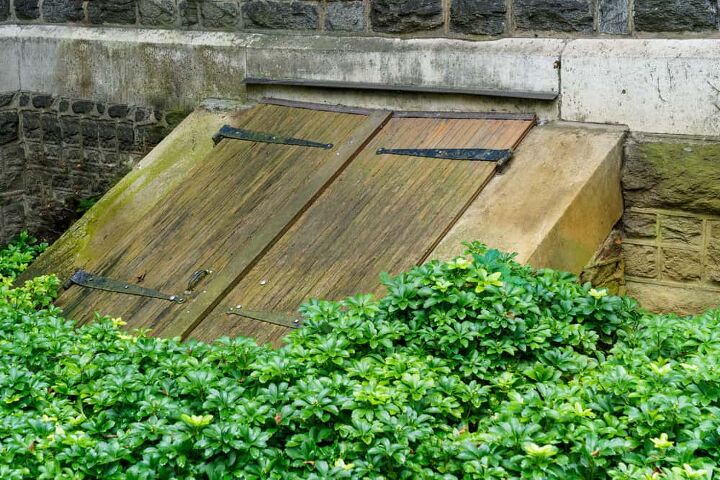






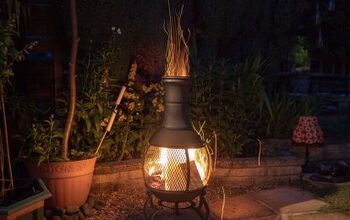

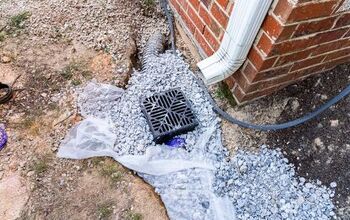


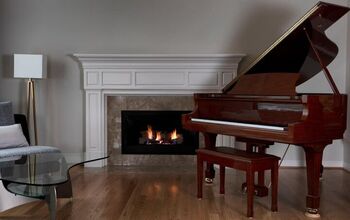


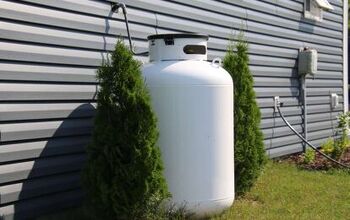

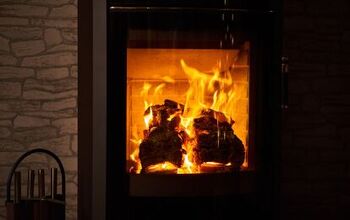
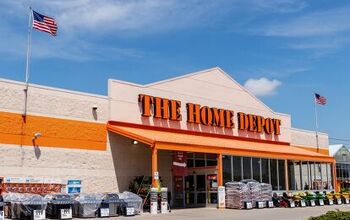
![12 Washing Machine Brands to Avoid [with Recall Data]](https://cdn-fastly.upgradedhome.com/media/2023/07/31/9075781/12-washing-machine-brands-to-avoid-with-recall-data.jpg?size=350x220)



